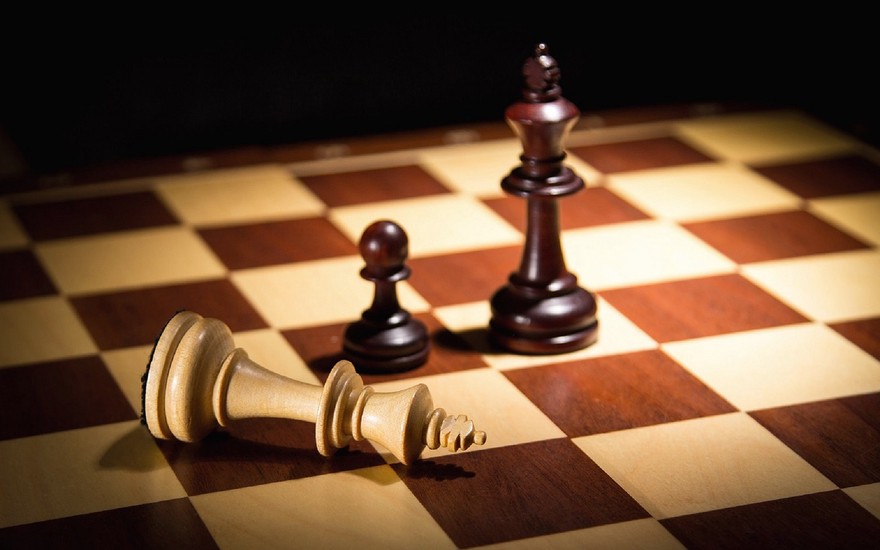
Image by Сергей from Pixabay
Endgames
They're a whole different gameMany years ago when I first started to take chess seriously I was intrigued by endgames. The first endgame book that I ever read was Pandolfini's Endgame Course, and it was here that I first learned about such fundamental concepts as the opposition and zugzwang.
One of the first things that grabbed me was that in endgames, particularly theoretical endgames like the kind often found in endgame books, positions were deterministic. That is, the position was either won, lost, or drawn; there was no such thing as "equal chances" or "White has a winning advantage." This seemed like a crucial concept that made endgames much more important. In non-endgame positions, if a book explained to me that a position was winning for White, I would often get frustrated because I would think, "I agree that White is much better because he has a great outpost for his knight and Black is stuck with a bad pawn structure, but how does White actually win?" The books just assumed that I would understand these things but I didn't and in many cases still don't.
Endgame books, on the other hand, wouldn't just tell you White was winning but would show you how White actually wins. There were techniques. Once you learned the techniques, if you remembered and played them correctly they were foolproof. This seemed like it made knowing these theoretical positions a big advantage since I wouldn't need to worry that I would get a "winning" position but then get outplayed by an opponent with superior ability. I'd just apply my endgame knowledge and win by force. Similarly if I knew how to draw a position where I was worse, there would be no possibility of messing it up, and I'd take my half-point.
I soon discovered there were several problems with this. Many of the techniques were difficult to remember, and you often had to get it exactly right or you'd mess it up. More importantly, theoretical positions would hardly ever occur in my games, and though it was still useful to know the technique of how to win (or draw) a king-and-pawn v. king endgame by utilizing the opposition, it was much more common to get something like king-and-five-pawns v. king-and-four-pawns. In that case so much depended on the relative positions of the pawns and kings it made it impossible to utilize any specific technique until all the pawns but one were traded off, which sometimes happened and more often didn't.
For practical endgames, though, there are many rules of thumb that aren't necessarily foolproof but are more or less essential to know if you want to be a good endgame player. I learned as many of these as I could, and at the level I was playing at the time (and even now to some extent) I thought these would give me a big advantage since so many of my opponents did not know them. Things like using your king as an attacking piece, putting a rook behind a passed pawn or candidate passed pawn, attacking enemy pawns with a rook from behind, and avoiding going into a king-and-pawns endgame unless you know you can get the result you want are elementary endgame principles that help tremendously if you otherwise wouldn't know what to do.
Because I was having really good results in endgames when I first learned these things, I incorrectly concluded that the endgame was easier than the opening or the middlegame because you didn't have to worry about tactics much. There were only a few pieces left on the board, so I thought I didn't have to worry about accidentally walking into a material-losing tactic or a mating net, and I could just apply elementary endgame principles. Everything seemed relatively straightforward and I didn't worry that my opponent had some unexpected shot that would spoil my plan.
Wrong. If anything I got it completely backward. Almost every endgame I've ever played has surprising resources that usually both players miss. A sufficiently inspired player can do many things wrong and still get a good result by finding some unexpected move that turns the game around, and it isn't unusual to go from winning to drawing to losing in the space of a couple of moves if you're not careful.
When I started studying endgames I did not yet recognize that chess knowledge was not the same thing as chess ability, and I assumed that as I learned important endgame concepts it automatically would make me a better player--in the endgame, at least--than those who had not, which was nearly everybody else near my level at the time. It took a long time before I realized it wasn't as simple as that; knowledge certainly helps, but players with sufficient ability can often defeat opponents with much more knowledge about the game.
It cuts both ways, though. Although bitter experience has shown me that learning a few basic endgame principles isn't enough, I've also learned that my opponents--even ones that are objectively stronger than me overall--rarely avoid mistakes in the endgame. Analysis with an engine almost always shows that at some point they make a mistake, and if I had responded correctly I could have changed a loss to a draw or a draw to a win, or occasionally even a loss to a win. This is encouraging. It's one of the reasons I still like endgames, even though I no longer think I'm particularly good at them.




